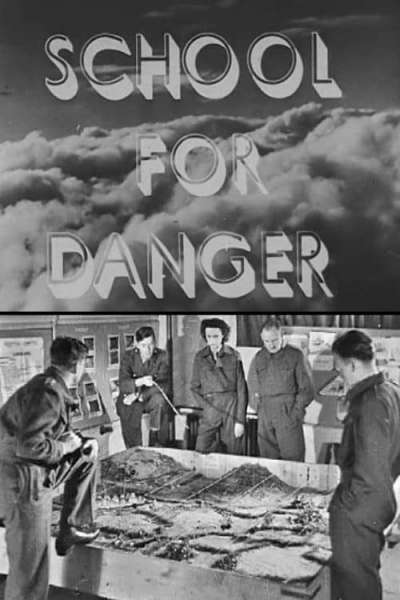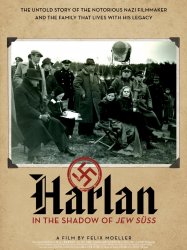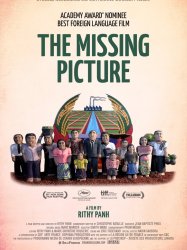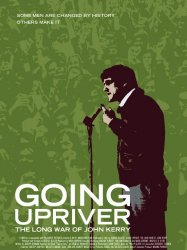School for Danger is a British film of genre War directed by Teddy Baird with Teddy Baird
School for Danger (1947)

If you like this film, let us know!
School for Danger (also known as Now It Can Be Told) is a 1947 British docudrama film directed by Teddy Baird depicting the training and deployment of agents of the Special Operations Executive during the Second World War. The film stars real-life SOE agents Captain Harry Rée and Jacqueline Nearne.
Synopsis
Felix and Cat are recruited and trained to be secret agents and are sent to occupied France where they organise resistance, carrying out sabotage and helping airmen get back to the UK.Actors

Teddy Baird
(Henry Pickard)
Comments
Leave comment :
Suggestions of similar film to School for Danger
There are 0 films with the same actors, 0 films with the same director, 12842 with the same cinematographic genres (including 323 with exactly the same 2 genres than School for Danger), to have finally 70 suggestions of similar films.If you liked School for Danger, you will probably like those similar films :

The War Game (1966)
, 48minutesDirected by Peter Watkins
Origin United-kingdom
Genres Drama, Science fiction, War, Documentary, Action
Themes Post-apocalyptic films, Films about religion, Films set in the future, Documentary films about nuclear technology, Political films, Dystopian films, Disaster films
Actors Peter Watkins
Rating79%





Filmed in black-and-white with a running time of just under 50 minutes, The War Game depicts the prelude to and the immediate weeks of the aftermath to a Soviet nuclear attack against Britain. A Chinese invasion of South Vietnam starts the war; tensions escalate when the United States authorises tactical nuclear warfare against the Chinese. Although Soviet and East German forces threaten to invade West Berlin if the US does not withdraw that decision, the US does not acquiesce to communist demands and the invasion takes place; two US Army divisions attempt to fight their way into Berlin to counter this, but the Russian and East German forces overwhelm them in conventional battle. In order to turn the tide, the US president authorises the NATO commanders to use their tactical nuclear weapons, and they soon do so. An escalating nuclear war results, during which larger Russian strategic IRBMs are launched at Britain. The film remarks that many Soviet missiles were, at the time, believed to be liquid-fuelled and stored above ground, making them vulnerable to attack, and hypothesises that in any nuclear crisis, the USSR would be obliged to fire all of them as early as possible in order to avoid their destruction by counter-attack, hence the rapid progression from tactical to strategic nuclear exchange.
 , 1h39
, 1h39Genres War, Documentary
Themes Documentary films about business, Documentary films about the film industry, Documentary films about war, Documentary films about historical events, Documentaire sur une personnalité, Documentary films about politics, Political films, Documentary films about World War II
Actors Veit Harlan, Hilde Körber, Christiane Kubrick, Kristina Söderbaum
Rating68%






The Missing Picture (2013)
, 1h32Directed by Rithy Panh
Origin France
Genres War, Documentary, Historical, Animation
Themes Politique, Films about racism, Documentary films about racism, Documentary films about law, Documentary films about war, Documentary films about historical events, Documentaire sur une personnalité, Political films, Autobiographical documentary films
Actors Randal Douc, Jean-Baptiste Phou, Rithy Panh
Rating72%





En utilisant des figurines d'argile et des images d'archive, Rithy Panh témoigne des atrocités commises par les Khmers rouges au Cambodge entre 1975 et 1979.

When the Mountains Tremble (1983)
, 1h23Directed by Newton Thomas Sigel, Pamela Yates
Origin Guatemala
Genres War, Documentary, Historical
Themes Documentary films about law, Documentary films about war, Documentary films about historical events, Documentaire sur une personnalité, Documentary films about politics, Political films
Actors Susan Sarandon, Shawn Elliott
Rating75%





 , 1h27
, 1h27Directed by George Butler
Origin USA
Genres War, Documentary, Historical
Themes Documentary films about war, Documentary films about historical events, Documentaire sur une personnalité, Documentary films about politics, Political films
Rating77%






Verdun: Visions of History (1928)
, 2h31Directed by Léon Poirier
Origin France
Genres Drama, War, Documentary, Historical
Themes French war films, Political films
Actors Albert Préjean, Suzanne Bianchetti, Jeanne Marie-Laurent, Maurice Schutz, Hans Brausewetter, Thomy Bourdelle
Rating72%





Le film retrace la bataille de Verdun qui s'est déroulée en 1916 lors de la Première Guerre mondiale. C'est autant un documentaire qu'une œuvre de fiction.

Guernica (1950)
, 13minutesDirected by Alain Resnais, Robert Hessens
Origin France
Genres War, Documentary
Themes Peinture
Actors Maria Casarès
Rating68%





After a brief voiceover by Jacques Pruvost highlighting the Guernica atrocity of April 1937, María Casares recites a poem by Paul Eluard on the subject of that atrocity illustrated with numerous paintings, drawings and sculptures of Pablo Picasso, latterly the painting Guernica (1937). The oppressive musical arrangements were composed by Guy Bernard.

To Be Twenty in the Aures (1972)
, 1h37Directed by René Vautier
Origin France
Genres Drama, War, Documentary
Themes French war films, La colonisation française, Algerian War films, Histoire de France
Actors Philippe Léotard, Alexandre Arcady, Jacques Canselier, Jean-Michel Ribes, Alain Scoff, Jean-Jacques Moreau
Rating68%





A group of young pacifists from Brittany is taken to a camp destined to deserters. They end up by accepting the increasing violence with which they are trained, and become true killing machines. In April, 1961, they are moved to the Aurès mountains in Algeria where they face off against troops from the National Liberation Army. During the battle, the battalion captures a rebel fighter which they shall execute the next morning. Their most precious ideals are supposed to become overridden by sheer discipline.
 , 1h25
, 1h25Directed by Tinto Brass
Genres War, Documentary, Historical, Musical
Actors Enrico Maria Salerno, Tino Buazzelli, Sandra Milo
Rating63%






Gettysburg (2011)
, 1h25Origin USA
Genres War, Documentary, Historical
Themes Political films
Actors Greg Berg, Tony Scott, Sam Rockwell
Rating64%





 Connection
Connection